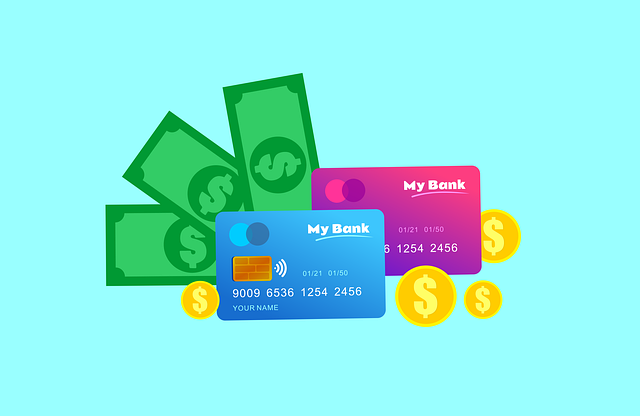Credit scores significantly impact loan eligibility for significant purchases like homes and cars. Higher scores secure better terms, while lower ones limit access. To improve eligibility, strategically dispute errors, pay bills on time, diversify credit use, and minimize new inquiries. Review your debt-to-income ratio, demonstrate financial stability, and prioritize paying down high-interest debts. Quick fixes like checking reports for inaccuracies and maintaining low credit utilization (below 30%) offer immediate improvements, but consistent, long-term habits are crucial for sustained eligibility enhancement. Building a strong credit history through timely payments, managing balances below 30%, regularly reviewing reports, and diversifying credit mixes is key. Neglecting these can lead to setbacks, so consistent monitoring and healthy financial habits are essential for long-term success.
Looking to secure that dream loan but struggling with your credit score? Understanding and improving your credit score is crucial for achieving loan approval. This comprehensive guide navigates the impact of credit scores, provides a checklist for assessing your financial health, offers strategic tips for quick score enhancement, and shares best practices for building a solid credit history. Discover how to overcome eligibility hurdles through effective credit score improvement tactics.
- Understanding Credit Scores and Their Impact on Loan Approvals
- Assessing Your Current Financial Health and Eligibility
- Strategies to Improve Credit Score Quickly
- Building a Solid Credit History for Future Loans
- Common Mistakes to Avoid During the Credit Score Enhancement Journey
Understanding Credit Scores and Their Impact on Loan Approvals

Credit scores are three-digit numbers that summarize your financial health and play a pivotal role in determining your eligibility for loans, including home mortgages, car loans, and personal loans. They are calculated based on your credit history, which includes factors like payment history, outstanding debt, length of credit history, types of credit used, and new credit inquiries. A higher credit score indicates better financial responsibility, making lenders more inclined to approve loans with favorable terms. Conversely, a low credit score can significantly hinder your eligibility for credit, as lenders perceive higher risk associated with borrowers with poor credit histories.
Improving your credit score is crucial for enhancing loan approval chances and securing better interest rates. Regularly reviewing your credit report for errors or discrepancies, making timely payments on all debts, maintaining a balanced credit mix by utilizing different types of credit responsibly, and avoiding excessive new credit inquiries can collectively contribute to an eligibility improvement. These strategies not only boost your credit score but also demonstrate to lenders that you are a responsible borrower, increasing the likelihood of loan approval.
Assessing Your Current Financial Health and Eligibility

Before applying for a loan, it’s crucial to assess your current financial health and eligibility improvement areas. Reviewing your credit report is the first step; this provides a clear picture of your current standing and any errors that might be impacting your score negatively. Compare your debt-to-income ratio with industry standards and identify areas where you can reduce unnecessary expenses or high-interest debt.
Lenders will also consider factors like your employment history, savings, and other financial commitments. Demonstrating a stable income, responsible money management, and a solid savings buffer can significantly enhance your eligibility for loan approval. Prioritize paying down high-interest debts and maintain low credit utilization rates to boost your score over time.
Strategies to Improve Credit Score Quickly

Boosting your credit score can significantly improve your eligibility for loans with better terms. While quick fixes might not offer long-term benefits, they can be a temporary game-changer. One effective strategy is to check your credit report regularly and dispute any inaccuracies. Errors in reporting can negatively impact your score, so ensuring their correction can immediately raise it. Additionally, paying off high-interest debt should be a priority; even settling small balances can make a noticeable difference.
Another swift method is to maintain low credit utilization. This refers to the amount of available credit you’re using at any given time. A good rule of thumb is to keep credit utilization below 30%. You can achieve this by paying down existing debts or increasing your credit limits (if responsible borrowing is feasible). Remember, these strategies provide a quick boost but should be accompanied by consistent, long-term financial habits for sustained credit score improvement.
Building a Solid Credit History for Future Loans

Building a solid credit history is crucial for future loan approvals and improving your eligibility. This starts with consistently making on-time payments; late or missed payments can significantly damage your score. Keep credit card balances low by spending within your means; utilizing over 30% of your available credit can hurt your creditworthiness. Regularly checking your credit report ensures accuracy, allowing you to dispute any errors promptly.
Diversifying your credit mix can also boost your score. This includes having a mix of credit types like credit cards, loans, and mortgages. The longer your positive credit history, the better. Lenders view a lengthy record of responsible borrowing as a sign of financial stability and reliability.
Common Mistakes to Avoid During the Credit Score Enhancement Journey

Many individuals embark on the journey of credit score enhancement with high hopes for loan approval, only to encounter setbacks due to common mistakes. One of the primary blunders is neglecting to review credit reports regularly. It’s crucial to understand that eligibility for loans and other financial opportunities heavily relies on a solid credit score. Lenders often check these scores before approving any application, so consistent monitoring ensures you’re aware of any discrepancies or errors.
Another mistake is assuming quick fixes exist. Enhancing a credit score takes time and consistent effort. Avoid get-rich-quick schemes promising instant results; instead, focus on building healthy financial habits. This includes timely bill payments, managing debt responsibly, and maintaining a low credit utilization ratio. Remember, patience and discipline are key to achieving long-term eligibility improvement.














